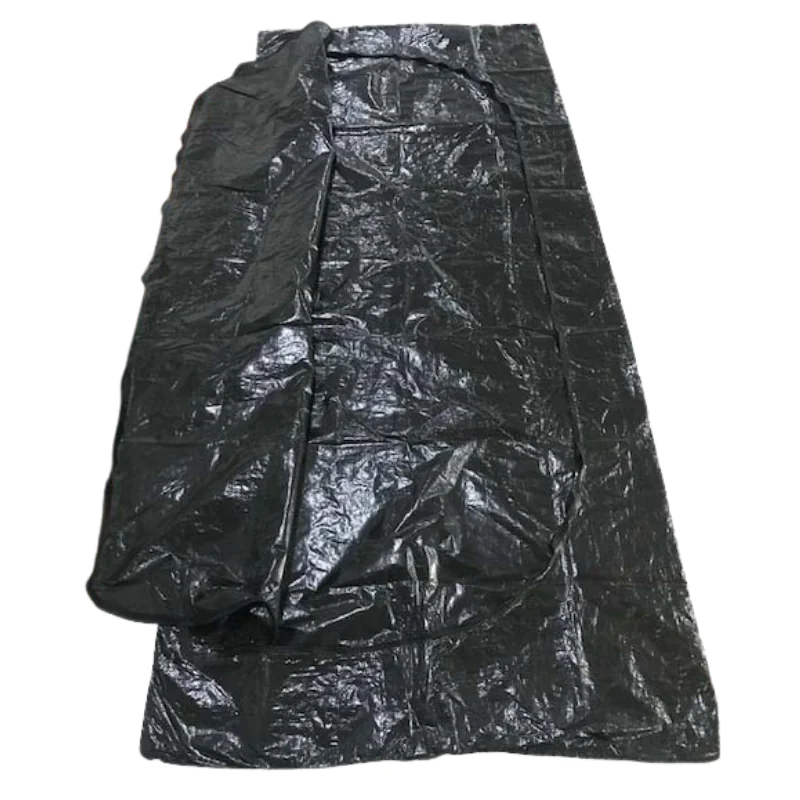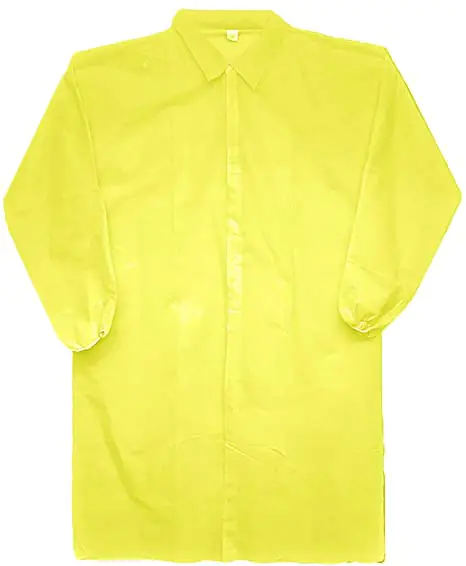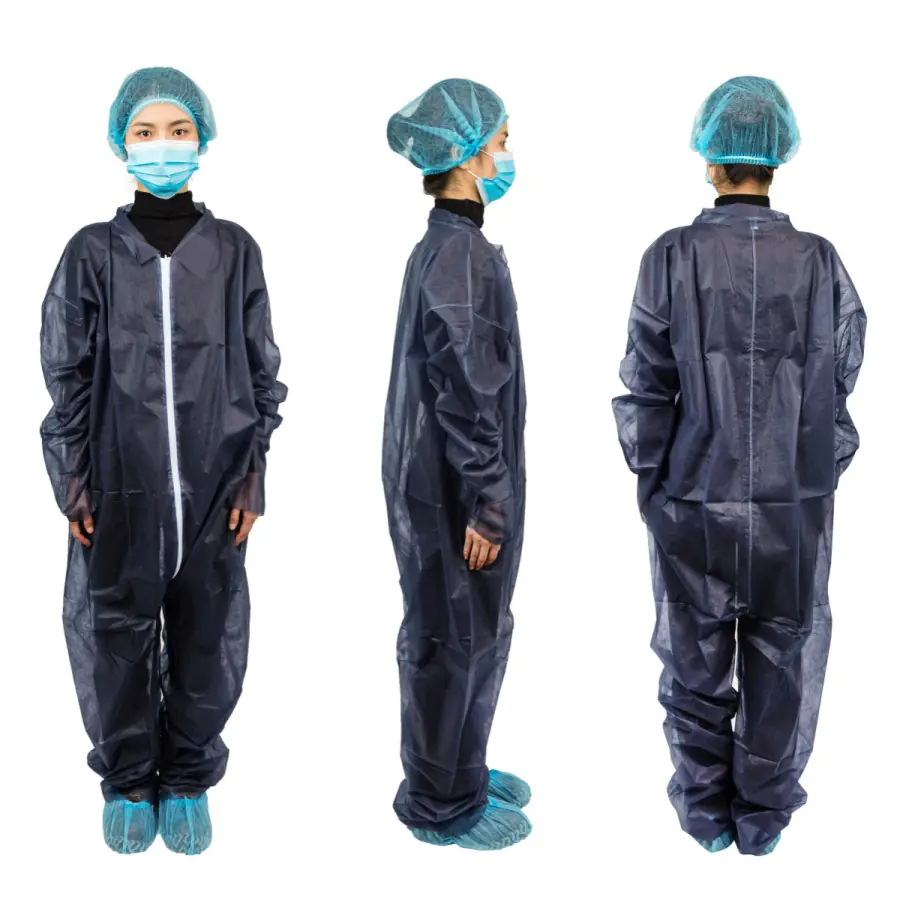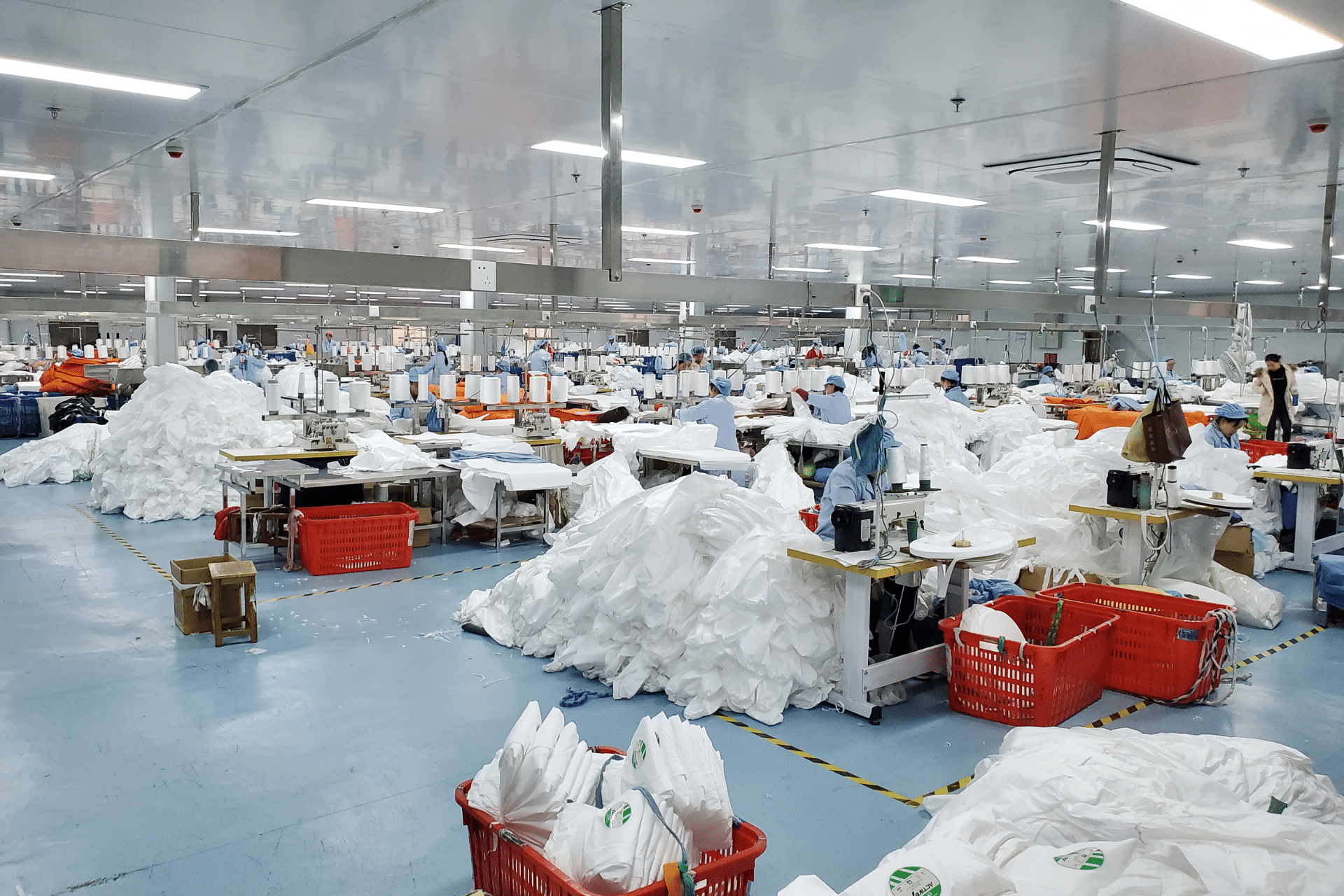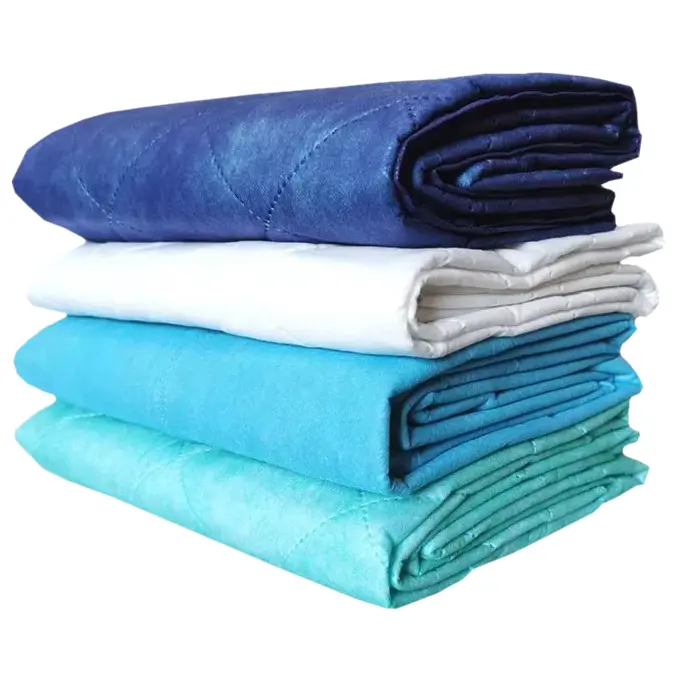Choosing the best material for a poncho depends on its intended use, including factors like weather conditions, durability, and comfort. Here are some of the most common materials used for ponchos, along with their pros and cons:
1. Polyester
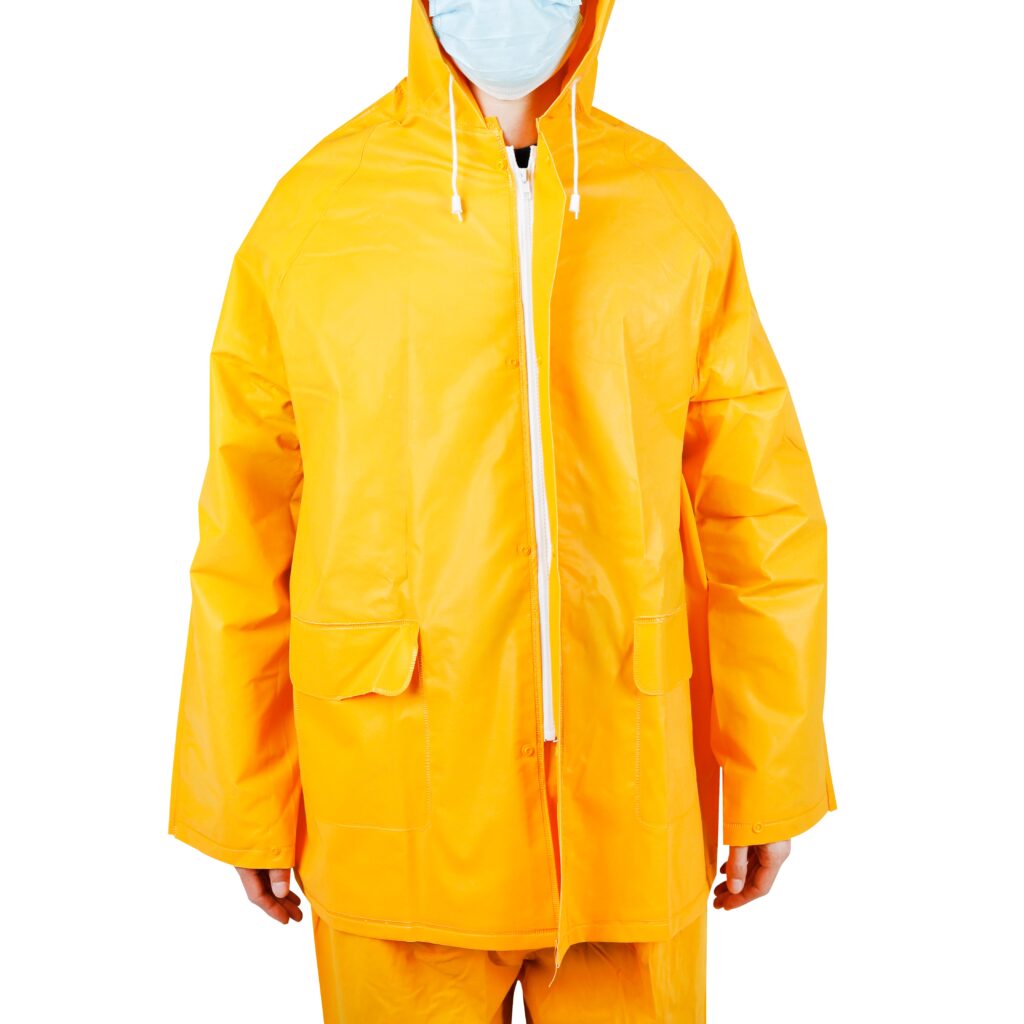
Pros:
- Water-Resistant: Polyester ponchos are excellent at repelling water, making them a great choice for rainy weather.
- Lightweight: Easy to carry around, which is ideal for outdoor activities like hiking or festivals.
- Durable: Resistant to stretching and shrinking, maintaining its shape and performance over time.
Cons:
- Breathability: Polyester can be less breathable compared to natural fibers, potentially causing discomfort in humid conditions.
2. Nylon
Pros:
- Waterproof: Often treated with a waterproof coating, making it highly effective against rain.
- Lightweight and Compact: Easy to fold and pack, making it suitable for emergency rain gear or travel.
Cons:
- Durability: While durable, nylon can be prone to punctures and tears if not handled carefully.
- Breathability: Similar to polyester, it may not be as breathable, leading to potential discomfort in warmer conditions.
3. PVC (Polyvinyl Chloride)
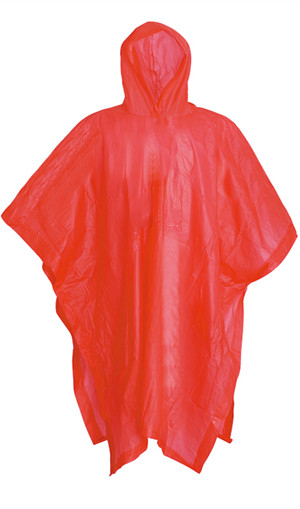
Pros:
- Highly Waterproof: Provides excellent protection against rain and water.
- Durable: Robust and resistant to wear and tear, ensuring long-lasting use.
Cons:
- Heavy: PVC ponchos can be heavier than other materials, making them less convenient for activities requiring lightweight gear.
- Less Comfortable: Can be stiff and may not offer the same level of comfort as other materials.
4. EVA (Ethylene Vinyl Acetate)
Pros:
- Waterproof: Provides excellent water resistance.
- Lightweight: Easier to carry and more comfortable to wear compared to PVC.
- Eco-Friendly: EVA is considered more environmentally friendly than PVC.
Cons:
- Durability: While EVA is durable, it may not be as long-lasting as PVC in harsh conditions.
5. Gore-Tex
Pros:
- Waterproof and Breathable: Provides superior protection against rain while allowing moisture to escape, keeping the wearer dry and comfortable.
- Durable: High resistance to wear and tear, making it ideal for extreme weather conditions.
Cons:
- Expensive: Typically more costly than other materials, reflecting its high performance and quality.
6. Ripstop Fabric
Pros:
- Durability: Made with a special reinforcing technique that makes it resistant to tearing and ripping.
- Water-Resistant: Often treated to be water-resistant, suitable for outdoor activities.
Cons:
- Weight: Can be heavier than other materials like polyester or nylon.
7. Wool
Pros:
- Warmth: Provides excellent insulation, making it suitable for cold and wet conditions.
- Natural Fiber: Breathable and comfortable to wear.
Cons:
- Water Resistance: While wool can repel water to some extent, it is not fully waterproof.
- Weight and Bulk: Can be heavy and bulky, making it less convenient for packing.
8. Polyethylene (PE)
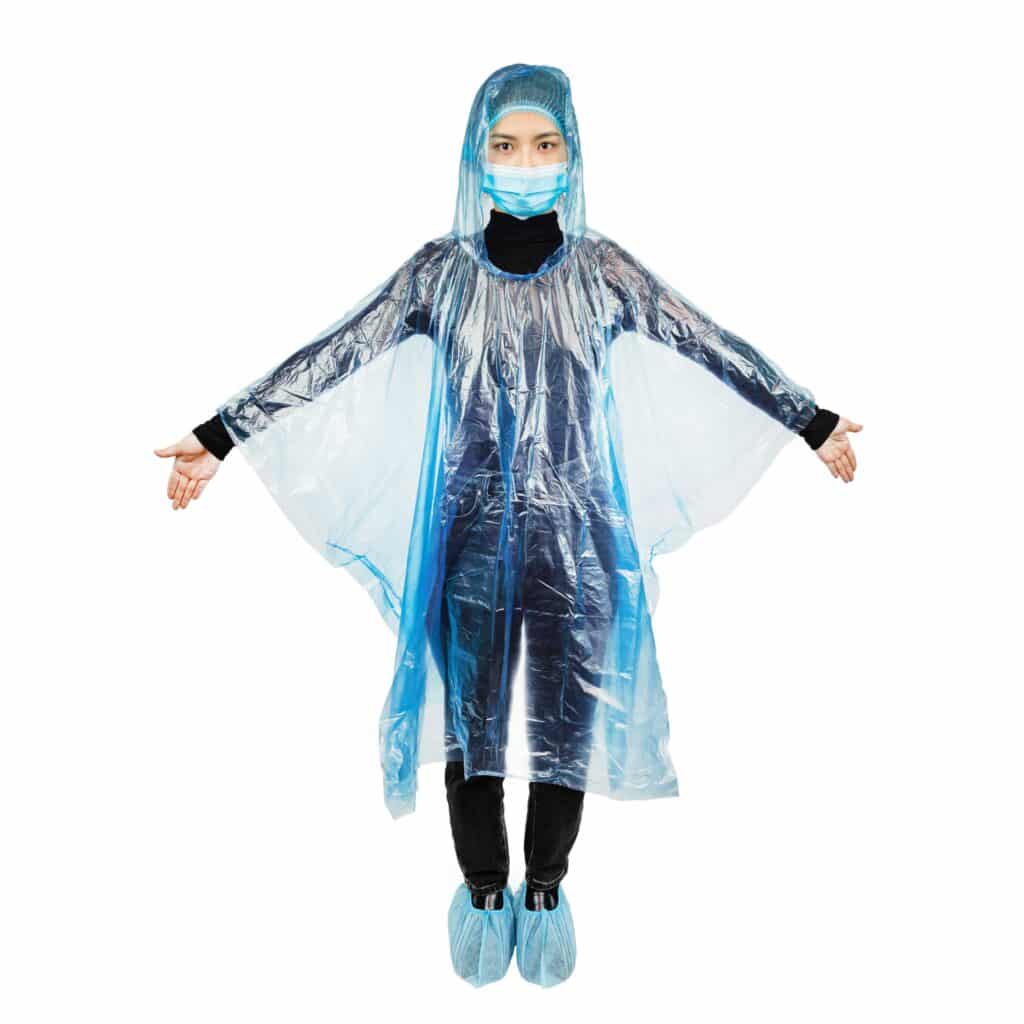
Pros:
- Waterproof: PE is highly effective at repelling water, making it a great material for rain ponchos.
- Lightweight: PE ponchos are generally very light, making them easy to carry and store, which is ideal for travel and emergency use.
- Cost-Effective: PE is relatively inexpensive, making it a popular choice for disposable or single-use ponchos.
- Durable: While lightweight, PE ponchos can still offer good durability for short-term use.
Cons:
- Breathability: PE is not breathable, which can lead to discomfort if worn for extended periods, especially in warm or humid conditions.
- Environmental Impact: Single-use PE ponchos can contribute to plastic waste if not disposed of properly.
Conclusion
- For Rain and Outdoor Activities: Nylon and Polyester ponchos are great for their lightweight and water-resistant properties. Gore-Tex offers the best performance but at a higher cost.
- For Durability: PVC and Ripstop Fabric are excellent choices for heavy-duty use and long-lasting protection.
- For Comfort and Warmth: Wool ponchos are suitable for cold and wet conditions but may not be fully waterproof.
- For lightweight and convenient: PE ponchos are the best choice.



